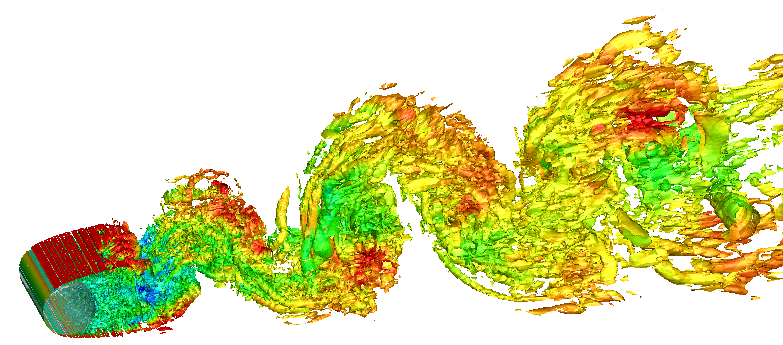Context

Aims and scope
The International Workshop on High Order CFD Methods aims at
-
providing an open and impartial forum for evaluating the status of high-order methods (order of accuracy > 2) in solving a wide range of flow problems;
-
assessing the performance of high-order methods through comparison to production 2nd order CFD codes widely used in the aerospace industry with well defined metrics;
-
supporting new research in the field of high order CFD methods by providing validation cases and aid during development and improvement of codes;
-
identifying pacing items in high-order methods and peripheral tools that need additional research and development in order to proliferate in the CFD community;
-
facilitating international collaboration and enhance mutual understanding among CFD researchers and managers in academia, government, and industries.
Test case categories
The test cases are organized following 3 categories of increasing difficulty
-
Baseline test cases (B) are simple benchmarks to help participants to test, validate and improve their method and code. Four subcategories have been identified: BI (inviscid), BL (laminar), BR (RANS) and BS (DNS or LES). A close interaction with the organizers and other participants is foreseen, therefore first results were expected 3 months before the workshop.
-
Advanced test cases (A) compare capabilities and performances of high order codes on challenging cases. Each case has a mandatory contribution. Two subcategories have been defined: AR (RANS) and AS (DNS or LES). Preliminary results were expected 3 months before the workshop, while final results were accepted up to a few weeks in advance.
-
Computational challenges (C) aim at testing the limits of the computational chain for complex applications. Two types of participation can be provided. Meshing participants are expected to provide a meshing strategy for a given geometry (CAD) and mesh specifications. A second contribution consists of the actual computation. The meshing strategy should be available 3 months in advance to allow to the test case leaders and computation participants to test the meshes, iterate on the mesh specifications and finalize their computations, which were due one month before the workshop.
For all test cases in categories (A) and (B) mesh suites are available, either as downloadable files or on request.
Organisation
The fourth edition was organized together with the Eccomas / 6th European Conference on CFD (ECFD VI) in Crete (http://www.eccomas2016.org), from the 6th through the 10th of June 2016. The workshop itself took place on the 4th and 5th of June at the Foundation for Research and Technology Hellas (FORTH) in Heraklion (Crete). ECCOMAS featured a minisymposium (MS910) dedicated to the workshop.
Contact:
info cenaero [dot] be (info[at]cenaero[dot]be)
cenaero [dot] be (info[at]cenaero[dot]be)